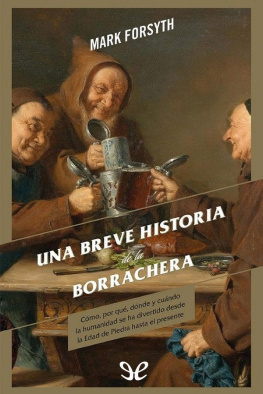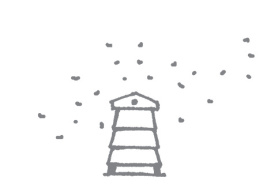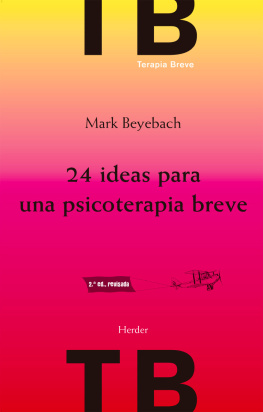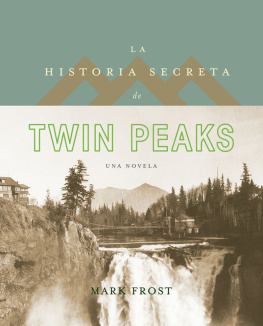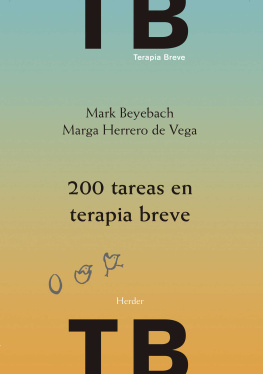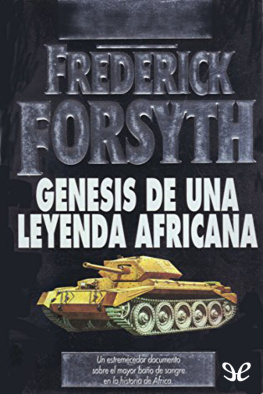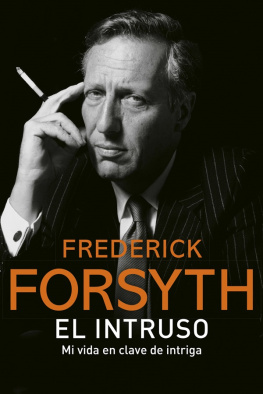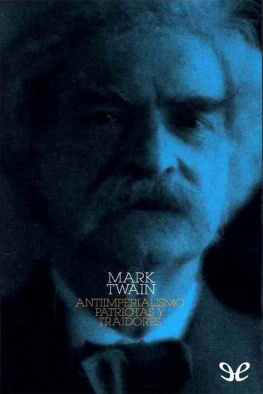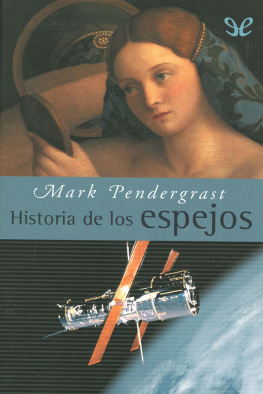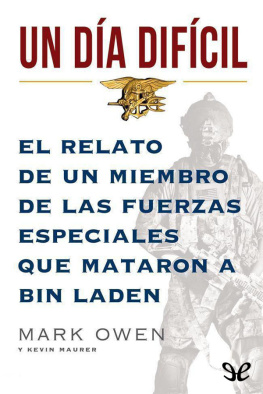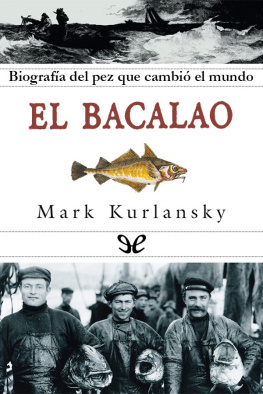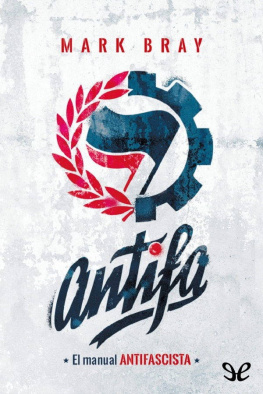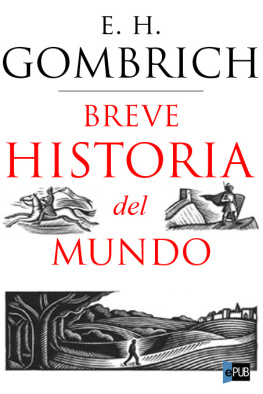Mark Forsyth - Una breve historia de la borrachera
Aquí puedes leer online Mark Forsyth - Una breve historia de la borrachera texto completo del libro (historia completa) en español de forma gratuita. Descargue pdf y epub, obtenga significado, portada y reseñas sobre este libro electrónico. Año: 2019, Editor: ePubLibre, Género: Historia. Descripción de la obra, (prefacio), así como las revisiones están disponibles. La mejor biblioteca de literatura LitFox.es creado para los amantes de la buena lectura y ofrece una amplia selección de géneros:
Novela romántica
Ciencia ficción
Aventura
Detective
Ciencia
Historia
Hogar y familia
Prosa
Arte
Política
Ordenador
No ficción
Religión
Negocios
Niños
Elija una categoría favorita y encuentre realmente lee libros que valgan la pena. Disfrute de la inmersión en el mundo de la imaginación, sienta las emociones de los personajes o aprenda algo nuevo para usted, haga un descubrimiento fascinante.
- Libro:Una breve historia de la borrachera
- Autor:
- Editor:ePubLibre
- Genre:
- Año:2019
- Índice:5 / 5
- Favoritos:Añadir a favoritos
- Tu marca:
- 100
- 1
- 2
- 3
- 4
- 5
Una breve historia de la borrachera: resumen, descripción y anotación
Ofrecemos leer una anotación, descripción, resumen o prefacio (depende de lo que el autor del libro "Una breve historia de la borrachera" escribió él mismo). Si no ha encontrado la información necesaria sobre el libro — escribe en los comentarios, intentaremos encontrarlo.
Una breve historia de la borrachera — leer online gratis el libro completo
A continuación se muestra el texto del libro, dividido por páginas. Sistema guardar el lugar de la última página leída, le permite leer cómodamente el libro" Una breve historia de la borrachera " online de forma gratuita, sin tener que buscar de nuevo cada vez donde lo dejaste. Poner un marcador, y puede ir a la página donde terminó de leer en cualquier momento.
Tamaño de fuente:
Intervalo:
Marcador:
AGRADECIMIENTOS
No hubiera sido posible escribir este libro sin la amable ayuda de muchas personas que se dieron el tiempo para reunirse conmigo o para responder mis impertinentes preguntas. Mi enorme gratitud al profesor Patrick McGovern, al profesor Paul Strohm, a la profesora Judith Jesch, al profesor John C. Darnell, a la profesora Betsy Bryan, al profesor Roland Mayer (muchas gracias por sus notas sobre el vómito romano), al doctor Lance B. Allred, a la profesora Martha Carlin, al profesor Faramerz Dabhoiwala, a David Langford, al doctor Sam Gilbert, a Tom O’Shea, Ian Irvine, Elena Cook, Hilary Scott, Derek Robinson y Stephen Ryan. Cualquier dato que se haya de alguna manera infiltrado en este libro es responsabilidad de ellos; todos los errores, absurdos y las salvajes conclusiones son enteramente responsabilidad mía.
Además, por leer los borradores y las útiles sugerencias sobre las comas de Oxford, debo agradecer a mis padres John Goldsmith y Jane Seeber.
BIBLIOGRAFÍA
General
- Iain Gately, Drink: A Cultural History of Alcohol, New York: Gotham, 2008
- Tom Standage, A History of the World in 6 Glasses, New York: Anchor, 2005
Capítulo 1: Evolución
- Sarah Cains, Craig Blomeley, Mihaly Kollo, Romeo Rácz and Denis Burdakov, «Agrp Neuron Activity is Required for Alcohol-Induced Overeating», Nature Communications 8: 14014 (2017), DOI: 10.1038/ncomms14014
- Matthew A. Carrigan, Oleg Uryasev, Carole B. Frye, Blair L. Eckman, Candace R. Myers, Thomas D. Hurley and Steven A. Benner, «Hominids Adapted to Metabolize Ethanol Long Before Human-Directed Fermentation», PNAS 112:2 (2015), 458-63, DOI: 10.1073/pnas.1404167111
- Charles Darwin, The Descent of Man, and Selection in Relation to Sex, 2 vols, London: John Murray, 1871
- Robert Dudley, The Drunken Monkey, Berkeley: University of California Press, 2014
- William J. A. Eiler II, Mario Džemidžic´, K. Rose Case, Christina M. Soeurt, Cheryl L. H. Armstrong, Richard D. Mattes, Sean J. O’Connor, Jaroslaw Harezlak, Anthony J. Acton, Robert V. Considine and David A. Kareken, «The Apéritif Effect: Alcohol’s Effects on the Brain’s Response to Food Aromas in Women», Obesity 23:7 (2015), 1386-93, DOI: 10.1002/oby.21109
- The Works of Benjamin Franklin; Containing Several Political and Historical Tracts Not Included in Any Former Edition, and Many Letters, Official and Private, Not Hitherto Published; with Notes and a Life of the Author, ed. Jared Sparks, vol. 2, Boston: Tappan, Whittemore & Mason, 1836
- A. P. Herbert, «Some Aspects of Hyperhydrophilia», in Cyril Ray (ed.), The Compleat Imbiber, vol. 1, London: Putnam, 1956
- Sir John Lubbock, Bart., The Beauties of Nature and the Wonders of the World We Live In, London: Macmillan, 1892, pp. 62-3
- Patrick E. McGovern, Uncorking the Past, Berkeley: University of California Press, 2009
- Ronald K. Siegel, Intoxication, Rochester, Vermont: Park Street Press, 1989
- Tom Standage, A History of the World in 6 Glasses, New York: Anchor, 2005
Capítulo 2: La prehistoria de la bebida
- Solomon H. Katz and Mary M. Voigt, «Bread and Beer: The Early Use of Cereals in the Human Diet», Expedition 28 (1986), 23-34, https://www.penn.museum/documents/publications/expedition/PDFs/28-2/Bread.pdf
- Patrick E. McGovern, Uncorking the Past, Berkeley: University of California Press, 2009
- «Symposium: Did Man Once Live by Beer Alone?», American Anthropologist 55:4 (1953), 515-26, http://onlinelibrary.wiley.com/doi/10.1525/aa.1953.55.4.02a00050/epdf
Capítulo 3: Los bares sumerios
- Lance Allred, «The Ancient Mesopotamian “Tavern”», AOS 2009
- Lance Allred, «Beer and Women in Mesopotamia», AOS 2008
- J. A. Black, G. Cunningham, J. Ebeling, E. Flückiger-Hawker, E. Robson, J. Taylor and G. Zólyomi, The Electronic Text Corpus of Sumerian Literature, Oxford: Faculty of Oriental Studies, University of Oxford, 1998-2006, http://etcsl.orinst.ox.ac.uk/
- Jerrold Cooper, «Prostitution», Reallexikon der Assyriologie 11 (2006), 12-22
Capítulo 4: El antiguo Egipto
- Betsy M. Bryan, «Hatshepsut and Cultic Revelries in the New Kingdom», in José M. Galán, Besty M. Bryan and Peter F. Dorman (eds), Creativity and Innovation in the Reign of Hatshepsut, SAOC 69, Chicago: The Oriental Institute, University of Chicago, 2014, pp. 93-123
- John C. Darnell, «Hathor Returns to Medamûd», Studien zur Altäg yptischen Kultur 22 (1995), 47-94
- John C. Darnell, «The Rituals of Love in Ancient Egypt: Festival Songs of the Eighteenth Dynasty and the Ramesside Love Poetry», Die Welt des Orients 46 (2016), 22-61, DOI: 10.13109/wdor.2016.46.1.22
- M. Depauw and M. Smith, «Visions of Ecstasy: Cultic Revelry before the Goddess Ai/Nehemanit. Ostraca Faculteit Letteren (K. U. Leuven) dem. 1-2», in F. Hoffmann and H. J. Thissen (eds), Res severa verum gaudium: Festschrift für Karl-Theodor Zauzich zum 65. Geburtstag am 8. Juni 2004, Studia Demotica 6 (2004), 67-93
- «Hymn from Ptolemaic Temple at Medamud», http://www.hethert.org/hymnsprayers.htm#Hymn from Ptolemaic Temple at Medamud, 1999-2007 by Neferuhethert
- William Kelly Simpson (ed.), The Literature of Ancient Egypt: An Antholog y of Stories, Instructions, and Poetry, trans. R. O. Faulkner, Edward F. Wente, Jr. and William Kelly Simpson, New Haven: Yale University Press, 1972
- William James, The Varieties of Religious Experience, London: Penguin Classics, 1985, p. 387
Capítulo 5: El simposio griego
- E. R. Dodds, The Greeks and the Irrational, Berkeley: University of California Press, 1951
- Robin Osborne, «Intoxication and Sociality: The Symposium in the Ancient Greek World», in Phil Withington and Angela McShane (eds), Cultures of Intoxication, Past & Present , Supplement 9, Oxford: Oxford University Press, 2014, 34-60
Capítulo 6: Beber en la antigua China
- The Book of Songs [Shih Ching], trans. Arthur Waley, London: George Allen & Uwin, 1937
- The Confucian Analects, trans. James Legge, Oxford: Clarendon Press, 1893
- «The Shû King, the Religious Portions of the Shih King and the Hsiâo King», trans. James Legge, in The Sacred Books of the East, vol. 3, Oxford: Clarendon Press, 1879
- Roel Sterckx, «Alcohol and Historiography in Early China», Global Food History, 1:1 (2015), 13-32
- Roel Sterckx, Food, Sacrifice, and Sagehood in Early China, Cambridge: Cambridge University Press, 2011
Capítulo 7: La Biblia
- Robert Alter, The Five Books of Moses: A Translation with Commentary, New York: Norton, 2004
- Robert Alter, The Wisdom Books: Job, Proverbs, and Ecclesiastes. A Translation with Commentary, New York: Norton, 2010
- C. K. Barrett, The Gospel According to St John, 2ndedn, London: SPCK, 1978
- Campbell Bonner, «A Dionysiac Miracle at Corinth», American Journal of Archaeolog y 33:3 (July-Sept. 1929), 368-75
- Barnabas Lindars, The Gospel of John, The New Century Bible Commentary, London: Marshall, Morgan & Scott, 1972
Capítulo 8: El convivium Romano
- Susan E. Alcock, «Power Lunches in the Eastern Roman Empire», Michigan Quarterly Review 42:4 (2003), 591-606, https://quod.lib.umich.edu/cgi/t/text/text-idx?page=browsecolls
- W. A. Becker, Gallus: or Roman Scenes of the Time of Augustus, trans. Rev. Frederick Metcalfe, London: Longmans, Green, 1886
Capítulo 9: La Edad Oscura
- Alcuin of York, «Letter to Higbald», in Stephen Allott,
Tamaño de fuente:
Intervalo:
Marcador:
Libros similares «Una breve historia de la borrachera»
Mira libros similares a Una breve historia de la borrachera. Hemos seleccionado literatura similar en nombre y significado con la esperanza de proporcionar lectores con más opciones para encontrar obras nuevas, interesantes y aún no leídas.
Discusión, reseñas del libro Una breve historia de la borrachera y solo las opiniones de los lectores. Deja tus comentarios, escribe lo que piensas sobre la obra, su significado o los personajes principales. Especifica exactamente lo que te gustó y lo que no te gustó, y por qué crees que sí.

